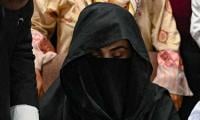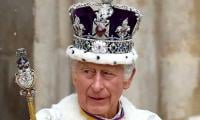The Sindh High Court (SHC) on Thursday dismissed two grandchildren’s claim of share on behalf of their deceased father in the inherited pre-Partition era old building in Ranchore Line area.
Plaintiffs Shamim Akhtar and her brother had filed a lawsuit in 2010 claiming that the defendants had surreptitiously got their names mutated in the record of rights, claiming to be legal heirs of Imam Bux, who was the property’s owner.
They told the court that they were the daughter and son of Ayub Ali, who had died during the life of their grandfather, and granddaughter and grandson of Imam Bux.
They invoked Section 4 of the Muslim Family Law Ordinance, 1961, saying that the pre-deceased son also has equal share in the inheritance of his father like the other surviving children.
They claimed that the defendants were usurping the rental income from the shops in the suit property to the exclusion of the plaintiffs and their legal heirs.
The defendants’ counsel denied the claim, saying that the mutation of the property was done in favour of the defendants after their father Imam Bux, the propositus (a person to whom descendants are commonly related), died on August 4, 1957, while the father of the plaintiffs passed away on March 2, 1948.
The counsel said that according to the record, the mutation was done in favour of the predecessors of the present defendants, Nazar Bhari and her sister Zubeda, on August 29, 1962.
After hearing the arguments of the counsel, a single SHC bench headed by Justice Mohammad Faisal Kamal Alam said that admittedly, the question of limited share in the estate left by the grandfather, the original owner, is not involved, and the plaintiffs are claiming share in the inheritance as direct legal heirs of Ayub Ali, the pre-deceased son of Imam Bux.
Hence, said the judge, the benefit extended under Section 4 of the 1961 ordinance for the legal heirs of pre-deceased children cannot be applied to the case of the plaintiffs because undisputedly, their predecessor in interest died on March 10, 1948, which is before the promulgation of the 1961 ordinance.
The court said the lawsuit suit was filed four decades after the death of the propositus, and 35 years after the mutation was done in favour of the two daughters of the propositus.
The bench said that the question framed by the court that if a son dies in the lifetime of his father, would the son’s legal heirs have the right to inherit property left by the grandfather, is not applicable in present case under the 1961 ordinance 1961, so the plaintiffs would not inherit anything.
The court also ordered recalling the earlier preliminary decree in the plaintiffs’ favour. The bench, however, said the defendants should also realise that the plaintiffs being undisputedly the direct legal heirs of their pre-deceased brother Ayub Ali and part of the same lineage should be treated with affection in accordance with the teachings of Islam.
The SHC said Islamic law encourages bequeathing and gifting of property, both moveable and immovable, and the defendants should also consider this aspect of the Sharia and may gift or transfer a portion of the suit property to the plaintiffs or start sharing the rental income accruing from the suit property.
Former Prime Minister Benazir Bhutto at an election rally in Rawalpindi shortly before she was killed, December 27,...
The leader of the opposition in the Karachi Metropolitan Corporation City Council, Saifuddin Advocate of the...
The representational image shows school children learning at a private school in Pakistan. — AFP/FileThe Sindh...
The Sindh High Court building in Karachi. — SHC website/FileThe Sindh High Court has granted bail to a man in a...
Members of Christian community offer Christmas prayers at a church. — APP/File Christians in Karachi celebrated...
A representational image showing ambulances parked at an incident site. — AFP/FileA police official and another...







